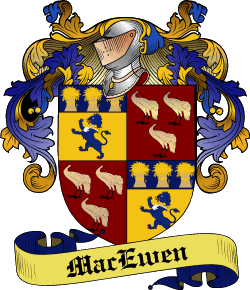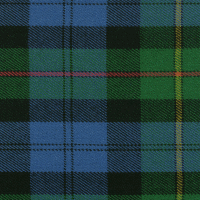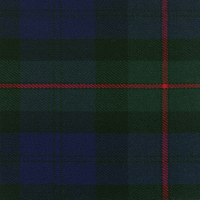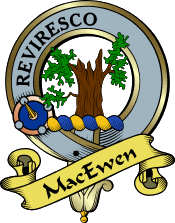|
|
Search

|
  Home Home
|
  Surname Surname
|
  First Name First Name
|
Popular Products

|
  Coat of Arms Coat of Arms
|
  Clan Badges Clan Badges
|
  Books & Gifts Books & Gifts
|
  Celtic Jewelry Celtic Jewelry
|
  Black Shirts Black Shirts
|
  CD Music CD Music
|
  Download Download
|
 Design Gallery
Design Gallery

|
  Irish Irish
|
  Flags Flags
|
  Celtic Celtic
|
  Tartans Tartans
|
  Scottish Scottish
|
  Claddagh Claddagh
|
  Surnames Surnames
|
  Highlander Highlander
|
  Celtic Radio Celtic Radio
|
Research

|
  History History
|
  Country Country
|
  Families Families
|
|
|
|
|
 We produce shirts for clans, organizations or websites! Expediated manufacturing and shipping is available for an additional charge. Our ever growing selections of designs includes family Coat of Arms, Scottish Clan Badges, Irish Claddagh Badges, Flags, Tartans, Surnames, Celtic, Irish and Scottish designs. Please contact us for a custom quote on bulk orders.
|
|
Our Heraldry Database has thousands of Family histories to search. Visit Now!
Scott

Coat of Arms
The Latin word 'Scotti' originally denoted the Irish Celts, and later the Gaels in general. However, Black, in
his Surnames of Scotland, notes that in the earliest certain records of the name (in a charter around 1120)
Uchtred 'Filius Scott' bears a remarkably Saxon personal name, if the family were truly of Celtic origin.
Henricus le Scotte witnessed a charter by David, Earl of Strath.....
|
|
|
Heraldry Database: Macewen
MacEwen

|
|


Surname: MacEwen
Branch: MacEwen
Origins: Scottish
More Info: Scotland
|
|
Background: The clan MacEwen trace their descent from the Kings of Ireland and claim a common ancestor with the Lamonts, MacLachlans and the MacNeils--Anradan. Together, these clans possessed most of the district of Cowal. The MacEwens were established on a strip of land along Loch Fyne in Argyll.
The earliest chief of the clan on record was Eoghain na' h' Oitrich (Ewen the Otter) who lived at the beginning of the 13th century. He was then succeeded by Severan II of Otter. Gillespie V of Otter assumed the chiefship about 1315 and was followed by Ewen, John and Walter. In 1432, the barony of Otter was confirmed by a charter of James I and was given to Swene MacEwen with a destination to the heirs of Duncan Campbell of Loch Awe. Swene MacEwen is the last chief on record.
After Swene's death in 1513, King James V confirmed the barony on Colin, Earl of Argyll. After that the lands of Loch Fyne remained in the possession of the Campbells. In 1598 many MacEwens were described as broken Highland men who were heavily armed and living by robbery. In 1602 the MacEwans were made subjects of the Earl of Argyll by an Act of Parliment.
The ruins of MacEwen's castle can be seen on the coast of Loch Fyne.
|
 Motto: Motto: Reviresco, I grow strong again. Arms: Quarterly, 1st & 4th, Or, a lion rampant Azure, gorged with a ducal crown Proper, and on a chief of the Second three garbs of the Field (MacEwan); 2nd & 3rd, Gules, three headless cranes Argent (Finnie). Crest: The trunk of an oak tree sprouting Proper. View the Heraldry Dictionary for help.

There are numerous spellings of this name, which is rendered in Gaelic as ‘Maceoghainn’. The sons of Ewen hold that they descend from Ewen of Otter on the shores of Loch Fyne in Argyll. Malcolm MacEwen witnessed a charter by the Earl of Atholl to the church of St Andrews around 1174. The chiefs of the clan seem to have stayed around Loch Fyne and shared a common heritage with the Maclachlans and the Macneils until around 1432, when by a charter of James I, the barony of Otter was confirmed to Sween Macewen with a destination to the heirs of Duncan Campbell of Loch Awe. Sween is the last Macewen chief on record, and thereafter they appear only as dependents of the Campbells or as broken (clanless) men. In 1598 two hundred Macewens were described as broken Highland men heavily armed and living by robbery. They are listed in an Act of Parliament in 1602, along with other broken clans as subjects of the Earl of Argyll who was made answerable for their good behaviour. Some of this name seem to have become poets or bards, and found patrons among the Campbells and the Macdougalls. Neil Macewen composed a poem on the death of Campbell of Glenorchy in 1630. The Macewens seem to have supported the Jacobite cause, but only as individuals, as they were lacking a chief to call them out as a clan. Sir Alexander Macewen was lately Provost of Inverness.
Name Variations: Eoghain, Eoghann, Eoghan, Ewen, Owens, Owans, Owins, Ouin, Quin, Quen, Qewn, Qewon, Qewen, Ewan, Ewing, Cuen, Cuin, Ceuen, Ewin, Ewine, Evein, Even, Ewinstoun, Kewan, Kevin, Kuen, Kwuin, Kuin, Kewyne, Coon, Ceown, Cywene, Kcune, Cyowin, Kewn, Yewnson, Eunson, Uin, Une, Keown, Kewon, Kewen, Cunn, Cuinn, Cune, Qune, Cewne, Cewene, Eowing, Ewinson, Ewinsone, Yewn, Qeun, Kune, Koen, MacEoghain, MacEoghann, MacEoghan, MacEwen, MacOwens, MacOwans, MacOwins, MacOuin, MacQuin, MacQuen, MacQewn, MacQewon, MacQewen, MacEwan, MacEwing, MacCuen, MacCuin, MacCeuen, MacEwin, MacEwine, MacEvein, MacEven, MacEwinstoun, MacKewan, MacKevin, MacKuen, MacKwuin, MacKuin, MacKewyne, MacCoon, MacCeown, MacCywene, MacKcune, MacCyowin, MacKewn, MacYewnson, MacEunson, MacUin, MacUne, MacKeown, MacKewon, MacKewen, MacCunn, MacCuinn, MacCune, MacQune, MacCewne, MacCewene, MacEowing, MacEwinson, MacEwinsone, MacYewn, MacQeun, MacKune, MacKoen .
References:One or more of the following publications has been referenced for this article.The General Armory; Sir Bernard Burke - 1842.
A Handbook of Mottoes; C.N. Elvin - 1860.
Scottish Clans and Tartans; Neil Grant - 2000.
Scottish Clan and Family Encyclopedia; George Way of Plean and Romilly Squire - 1994.
Scottish Clans and Tartans; Ian Grimble - 1973.
World Tartans; Iain Zaczek - 2001.
Clans and Families of Scotland; Alexander Fulton - 1991.

|

Ancient | 
Modern |




Sign-up for a Founders account and receive personalized
family heraldry service and much more!

Want to know more?
Click the Heart!
|
|
|



